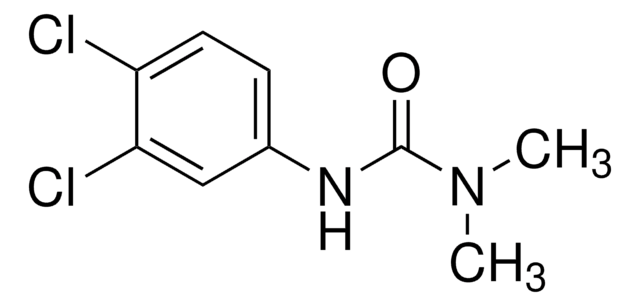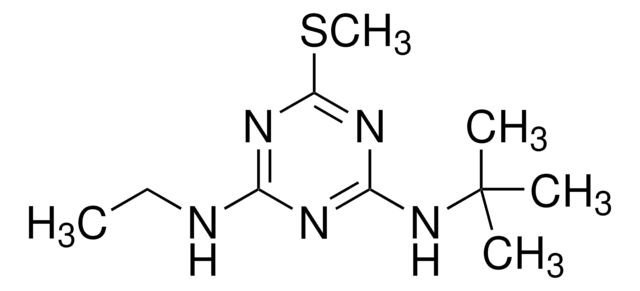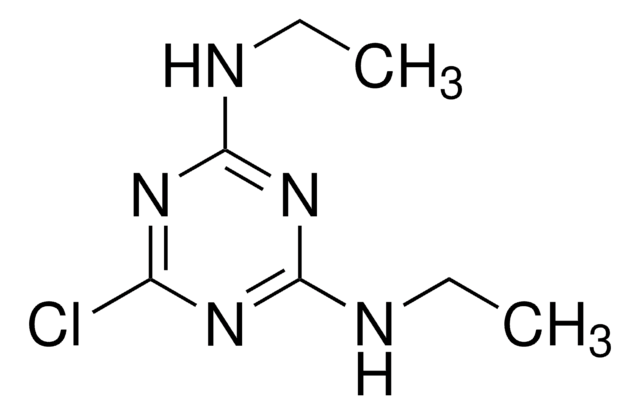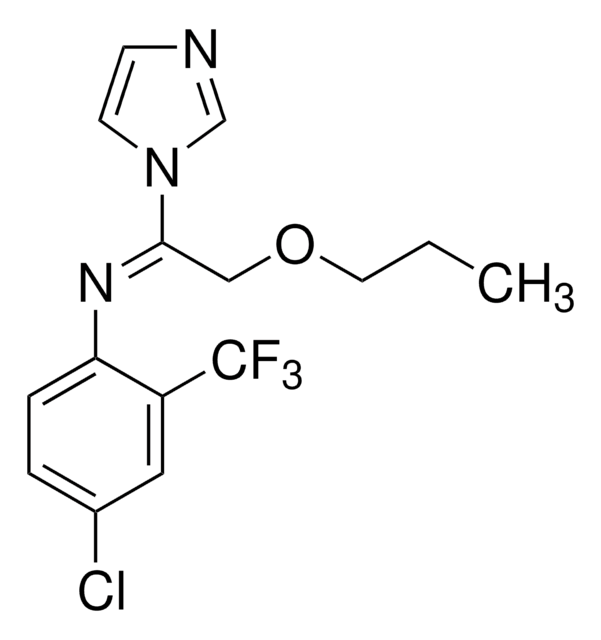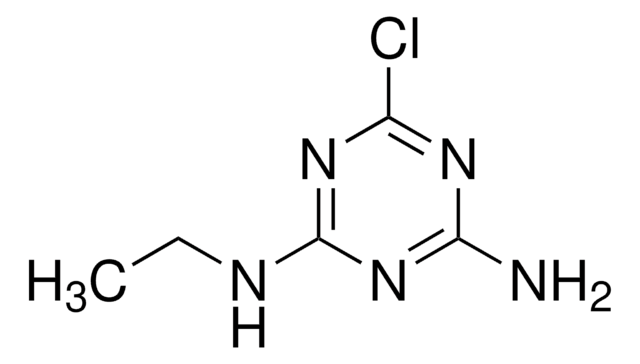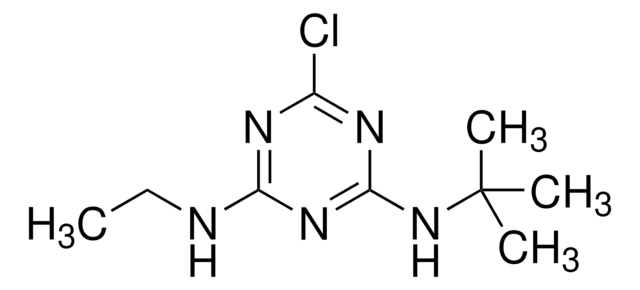45678
Terbuthylazin
PESTANAL®, analytical standard
About This Item
Produits recommandés
Qualité
analytical standard
Niveau de qualité
Gamme de produits
PESTANAL®
Durée de conservation
limited shelf life, expiry date on the label
Technique(s)
solid phase extraction (SPE): suitable
Application(s)
agriculture
environmental
Format
neat
Chaîne SMILES
CCNc1nc(Cl)nc(NC(C)(C)C)n1
InChI
1S/C9H16ClN5/c1-5-11-7-12-6(10)13-8(14-7)15-9(2,3)4/h5H2,1-4H3,(H2,11,12,13,14,15)
Clé InChI
FZXISNSWEXTPMF-UHFFFAOYSA-N
Vous recherchez des produits similaires ? Visite Guide de comparaison des produits
Catégories apparentées
Description générale
Application
- Pesticide distribution and atmospheric persistence: An extensive study reveals the widespread distribution of pesticides, including Terbuthylazine, in the European atmosphere, challenging assumptions about their degradability. This highlights the need for enhanced regulatory measures and monitoring strategies to mitigate environmental and health risks associated with persistent atmospheric contaminants (Mayer et al., 2024).
- Herbicide impact on non-target plant species: Research evaluates the early responses of Solanum nigrum L. to herbicide treatments involving Terbuthylazine, investigating changes in antioxidant activity, osmolyte concentrations, and chlorophyll fluorescence. This study contributes to understanding the selective action of Terbuthylazine and its broader ecological impacts, providing insights for developing more targeted and sustainable herbicidal applications (Hassannejad et al., 2023).
- Human health risk from groundwater herbicide contamination: A human health risk assessment approach is applied to study the occurrence of herbicides, including Terbuthylazine, in the groundwater of Northern Greece. The findings emphasize the importance of continuous environmental monitoring and the development of mitigation strategies to ensure water safety and public health (Parlakidis et al., 2022).
- Seasonal distribution of pesticide residues in water bodies: A study on the seasonal distribution of multiclass pesticide residues in surface waters of northwest Croatia includes Terbuthylazine, discussing the implications for aquatic ecosystems and the effectiveness of current water treatment practices. This research is crucial for assessing the environmental persistence and ecological risks of such chemicals (Fingler et al., 2021).
- Direct pesticide exposure in conservation areas: An investigation into direct pesticide exposure, including Terbuthylazine, in nature conservation areas in Germany, underscores the challenges of protecting vulnerable ecosystems from agricultural chemical intrusion. The study highlights the critical need for stringent environmental protections and pesticide use regulations to preserve biodiversity (Brühl et al., 2021).
Informations légales
Mention d'avertissement
Warning
Mentions de danger
Conseils de prudence
Classification des risques
Acute Tox. 4 Oral - Aquatic Acute 1 - Aquatic Chronic 1 - STOT RE 2
Code de la classe de stockage
11 - Combustible Solids
Classe de danger pour l'eau (WGK)
WGK 2
Point d'éclair (°F)
212.0 °F - closed cup
Point d'éclair (°C)
100 °C - closed cup
Équipement de protection individuelle
dust mask type N95 (US), Eyeshields, Faceshields, Gloves
Certificats d'analyse (COA)
Recherchez un Certificats d'analyse (COA) en saisissant le numéro de lot du produit. Les numéros de lot figurent sur l'étiquette du produit après les mots "Lot" ou "Batch".
Déjà en possession de ce produit ?
Retrouvez la documentation relative aux produits que vous avez récemment achetés dans la Bibliothèque de documents.
Les clients ont également consulté
Notre équipe de scientifiques dispose d'une expérience dans tous les secteurs de la recherche, notamment en sciences de la vie, science des matériaux, synthèse chimique, chromatographie, analyse et dans de nombreux autres domaines..
Contacter notre Service technique

